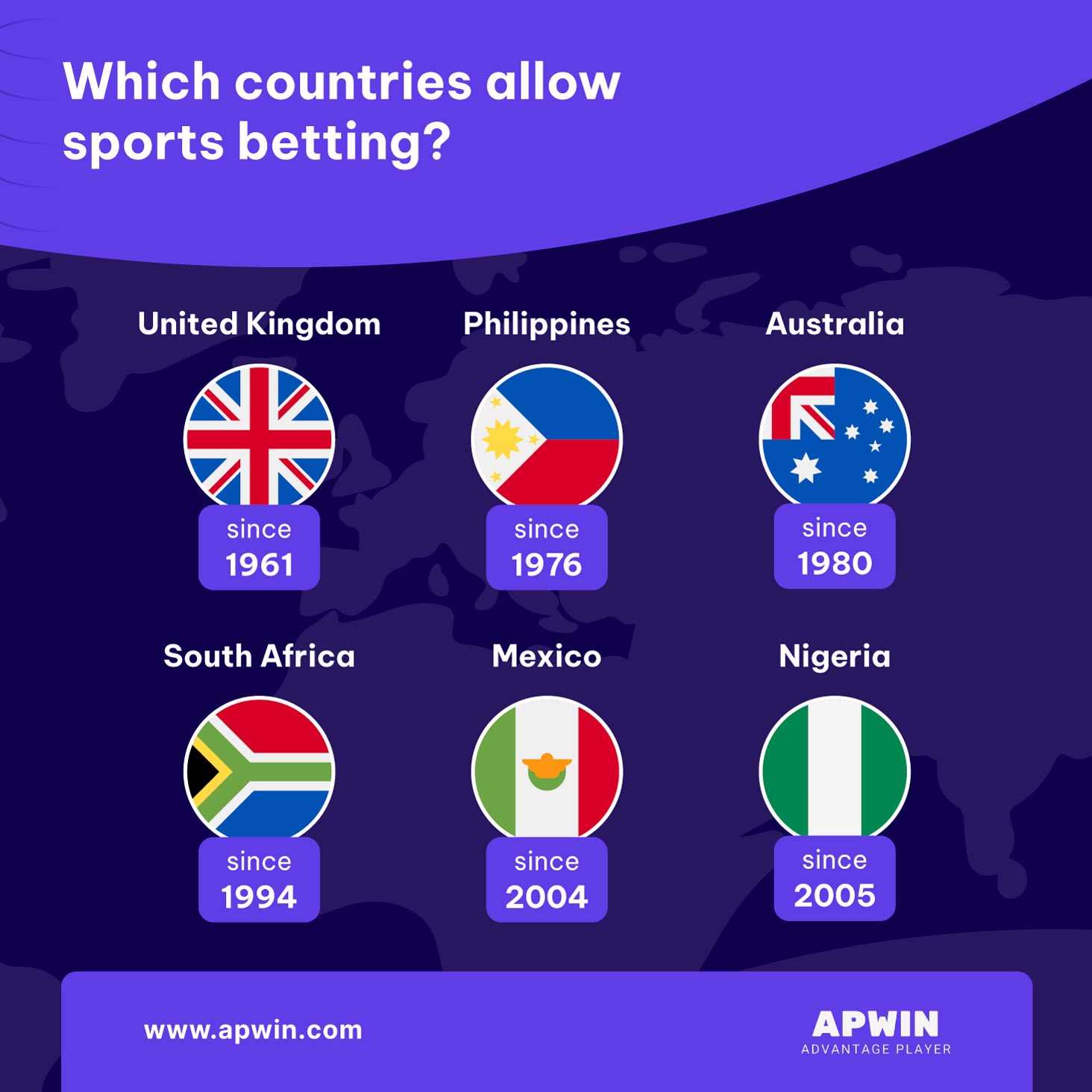Why Is Sports Betting Still Illegal in Some Countries?
Sports and betting have been hugely correlated for decades as it brings extra excitement to the sportspeople already love with the chance to make extra bucks. However, even though many countries legalize sports betting, some countries have made betting on sports illegal.
Why is that? Some countries have decided sports betting should go into oblivion. They fail to consider that if their laws allow the creation of betting sites, the economy can get its fair share from the added tax value.
We’ll look into why some countries prohibit sports betting and, later on, the countries that allow them.
Here are the reasons why sports betting is illegal in some countries. Keep in mind that the laws may vary, which means that the reason behind forbidding any betting activities can differ between countries.
Some Countries Consider Betting Sinful
Many religions in countries look at betting in general as a sinful activity. Even though none of the world’s religions explicitly states that betting is a sin, people feel like sports betting is a kind of greed as it tempts people to get quick money.
Besides greed, other people look at betting as a crime as there’s an implied morality to look at, and betting goes against that flow of this particular code.
Match-Fixing
There have been issues and concerns about the rise of match-fixing in recent years, which may influence the game’s results. Incumbents in many countries are concerned if certain people will reward players, coaches, and officials economically, which eventually affects the match’s outcome.
Betting sites that know the end results can influence the odds, significantly raising their return profits. You can consider this as a cheat sheet. If the bookies see the game’s outcome way before it happened, then consider this as something entirely new. Match mixing isn’t only illegal, but it also crashes the sportsmanship’s very core.
Betting Alters The Meaning of Sports
Sports lovers despise betting as an activity that changes the meaning of sports. Betting is known to shift one’s focus from the sport to only their bet.
Therefore, these bettors don’t cheer their favourite teams to do well, but they support them because their finances depend on the team’s victory. As you may know, the entire idea of supporting a team with the hope of gaining profits violates the sport’s concept, which is why we want to play and watch it.
Causes Stress for Players
Some countries have prohibited betting as players have gone through an unnecessary load of pressure and worry. This stress comes from players worrying that they might be why their supporters will lose their bets. Besides the challenges of winning a match, they are also battling the demons of not being good enough and, if you as a supporter, will win back your money.
This can cause anxiety for players and make them play worse than they would if the pressure from betting did not exist. Thus, this single fact is what makes some countries illegalize sports betting. Besides that, the players may also feel like you are watching them for the stake you’ve put on the match, which can significantly influence the match’s outcome.
So, in Which Countries Are Sports Betting Legal?
Even though many countries still close their doors for sports betting, other countries made betting legal. Besides the US, let’s look at the countries that legalize sports betting and find out its impact on their culture and economy.

Australia
The land down under has legalized on-track race betting since 1810 and overall sports betting in 1980.
Sports betting has helped Australia open up a new revenue stream for government taxation. Still, there’s currently a debate if the cost for betting is too much on their bigger community. A lot of it has to do with the Aussie kids being far too exposed to betting advertising, which results in these children considering betting as an essential part of sports.
Philippines
The Philippines legalized betting since they established their government regulatory body Amusement and Gaming Corporation in 1976, which influenced the country’s betting business regulation.
Sports betting in the Philippines resulted in some illegal sports betting and a basketball player accused a league of game-fixing.
United Kingdom
Ever since sports betting was legalized in 1961 in the UK, it is estimated that 10,000 shops opened up within six months.
The Premier League is known as the most globally viewed season-long domestic sports competition, and its success also comes from its attractiveness for sports betting. However, on the UK's governance side, their long history of sports betting has proven that they’ve managed to execute good practice measures over the decades.
The 2005 Gambling Act has led bookmakers to share everything they know of the corrupt activities with sports authorities. Sports corruption is also considered a criminal offence under the act and the Fraud Act of 2006.
Besides these three nations, other countries also welcome the concept of sports betting with some restrictions on specific sports. These countries include South Africa, Nigeria, Mexico, Ghana, Argentina and Europe who mostly legalize sports betting.



